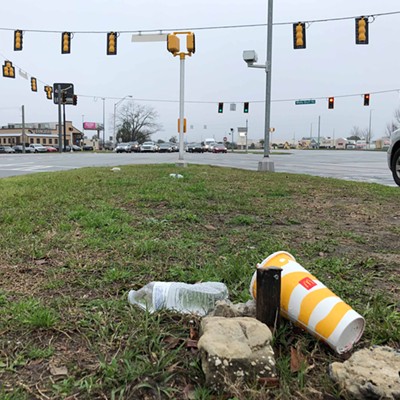ONE OF THE most consistently frustrating things about Savannah City government is its stubborn need to patronizingly lecture small businesspeople about their "responsibilities to their neighborhood and to the community," while rarely holding big business to the same standard.
I can’t count how many times I’ve watched a Council meeting where an individual trying to open a small business—who was well within their legal rights and had jumped through all the required hoops —has to stand hat in hand, smiling and nodding, while grandstanding politicians publicly accuse them of not doing enough due diligence and of not caring about their community.
Often it doesn’t seem to matter if you’ve satisfied all the requirements. You’ll still be told to come back later after you’ve further watered down the already-thin profit margin of your business plan, causing more time to slip away during which you could have been making that business succeed and employing people and paying taxes.
A few minutes later at the same meeting, though, the same politicians will often show no hesitation whatsoever about ramrodding through some corporate development that flouts current guidelines and brazenly pushes the envelope of legality.
The double standard is brutal, and painfully obvious.
After spending 20 minutes berating a private citizen for having the gall to want to open a small restaurant or rent out a room, when they’re up against a big out of town corporation they’ll just shrug their shoulders and say, hey, these guys are within their legal rights, what can we do? Oh well.
I suspect this double standard is present in a lot of places, given that money talks loudly anywhere and everywhere it goes. In Savannah, however, it seems to be a way of life.
The double standard reared its head during the Jackson administration on a very regular basis, and there’s little proof that things are changing during the DeLoach administration.
At the most recent Council meeting, the contentious issue of Short Term Vacation Rentals came up. Reasonable people can disagree about STVRs and their positive and negative impacts. It’s a discussion that needs to be had.
However, at this particular meeting all that was in question was a reasonable update to City code allowing persons in a section of Midtown to rent out a carriage house, provided the property owner resides onsite.
There was, of course, opposition to even this minor, cursory nod to the 21st Century economy.
In addressing the issue of STVRs, Mayor DeLoach said, “We have to stop this intrusion in our lifestyle just for somebody to make money. We’re headed down the wrong path. We’re gonna lose people that live here. When you do that you lose the soul of the community.”
The STVR rental vote was delayed until a later meeting.
Observers couldn’t help but remember that when neighborhood residents literally begged Council to delay a decision on turning over right of way to Munster Street to the massive 11-acre development set to replace Johnny Harris, Council’s vote couldn’t take place quick enough.
Before that 7-2 vote, there was no piety about the developer’s need to consider community standards, no moralizing on the subject of making money.
In response to Mayor DeLoach’s comments on STVR, the Facebook page Concerned Citizens for Wicklow posted:
“Mr. Mayor, we sure could’ve used some of this sentiment applied to the 11 acres of single family homes, the gorgeous and historic Johnny Harris building, and the bucolic horse stables that are to be razed to make way for more suburban sprawl on Victory Drive.”
Renting out a carriage house vs. an 11-acre development in an already densely developed area? Which of these more threatens the “soul of the community?”
With previous administrations one could at least make the case that they were ideologically predisposed to be skeptical of private enterprise in general.
But the DeLoach administration and the new Council majority came in not only as friends of small business, but with an actual successful small businessman as Mayor.
When a local politician does feel the need to explain their support for some giant, rule-bending new development, they’ll typically do so by citing the jobs created, as if there is some magic number of proposed new jobs for which all the rules should go out the window.
Small business, however, is the leading indicator of a robust and resilient local economy, able to resist layoffs and boom/bust cycles because it is rooted in the community, and therefore more flexible and more responsive.
If only our government were more flexible and responsive to small business.






























